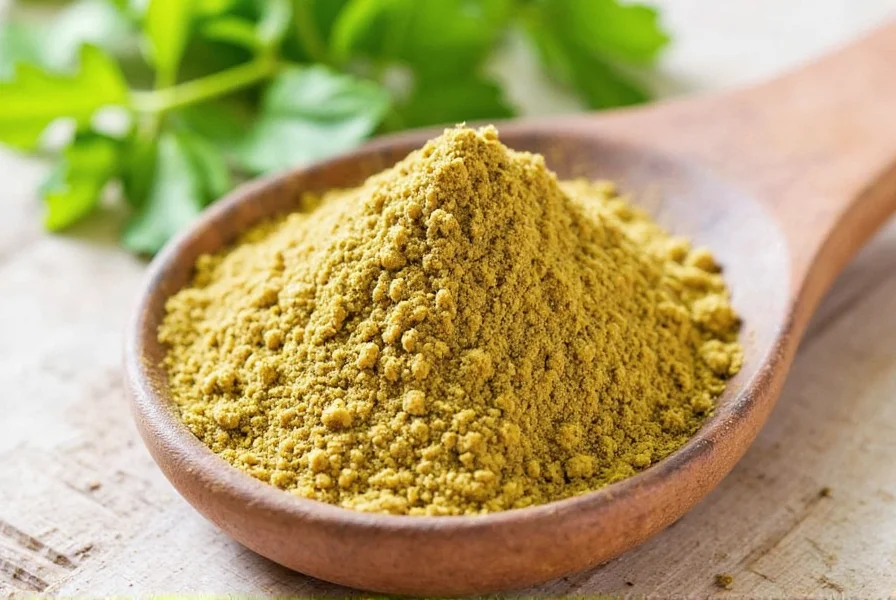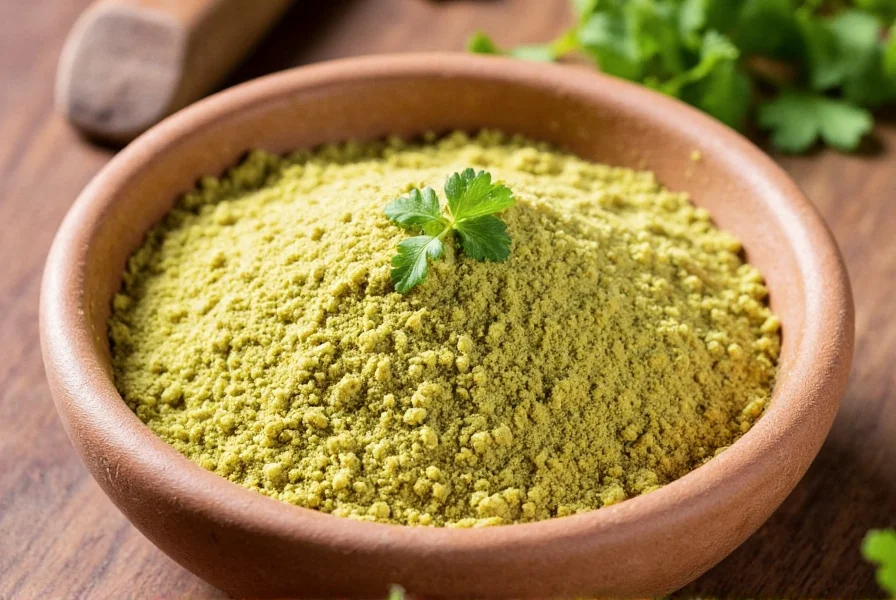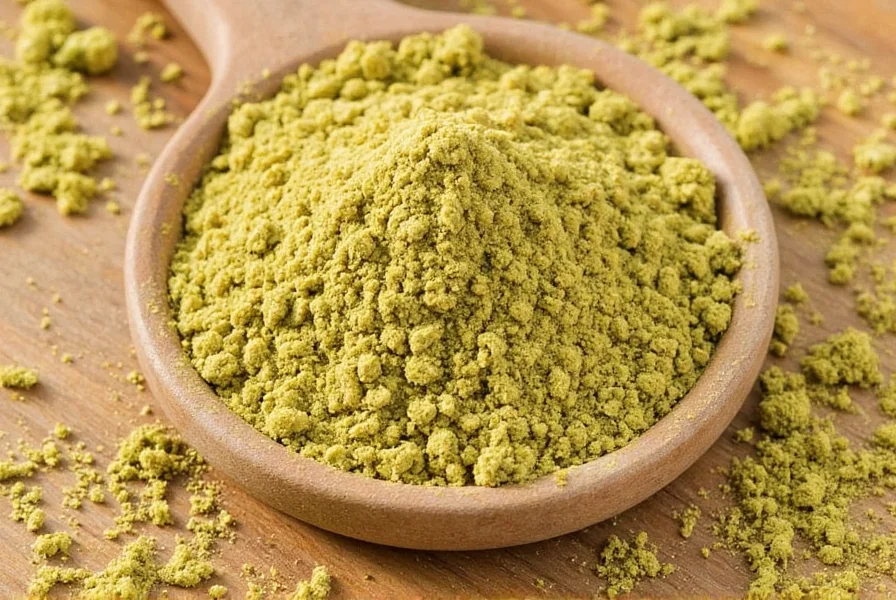Understanding this versatile spice begins with recognizing its botanical origin. Coriander seeds come from the dried fruit of the cilantro plant, harvested when the plant matures and produces small, round seeds. When ground into powder, these seeds release aromatic compounds that create its distinctive flavor profile—citrusy with hints of sage, floral notes, and a mild sweetness.
What Exactly Is Coriander Powder?
Coriander powder represents the ground form of coriander seeds, which are technically the dried fruits of the coriander plant. This spice has been used for thousands of years across multiple civilizations, with archaeological evidence showing its presence in ancient Egyptian tombs and Roman kitchens. The powder form offers convenience for cooking while maintaining most of the seed's essential oils and flavor compounds.
Many people confuse coriander powder with cumin or mistake it for dried cilantro leaves. However, coriander powder comes exclusively from the seeds, while cilantro refers to the fresh leaves of the same plant. This distinction matters significantly in cooking, as the flavor profiles differ dramatically.

Nutritional Profile and Health Benefits
Coriander powder contains several valuable nutrients and compounds that contribute to potential health benefits. A single tablespoon (6g) provides approximately:
| Nutrient | Amount per Tbsp | Daily Value % |
|---|---|---|
| Calories | 20 | 1% |
| Dietary Fiber | 1.5g | 5% |
| Iron | 1.2mg | 7% |
| Magnesium | 12mg | 3% |
| Antioxidants | Significant | N/A |
Research suggests coriander powder may offer several health benefits. Studies published in the Journal of Ethnopharmacology indicate that coriander seeds contain compounds with potential anti-inflammatory properties. Other research points to possible digestive benefits, as coriander has traditionally been used to alleviate bloating and support healthy digestion.
When considering coriander powder health benefits for digestion, the spice appears to stimulate enzyme production that aids in breaking down food. For those exploring how coriander powder lowers blood sugar, preliminary studies show promising results, though more research is needed to confirm these effects in humans.
Culinary Applications and Flavor Pairing
The flavor profile of coriander powder makes it incredibly versatile across global cuisines. Unlike its fresh leaf counterpart (cilantro), which has a polarizing soapy note for some people, coriander powder offers a universally appealing warmth that complements both savory and sweet dishes.
Chefs often describe coriander powder as having three distinct flavor stages:
- Initial note: Bright citrus (lemon-lime)
- Middle note: Warm, floral spice
- Finish: Earthy, slightly peppery aftertaste
When working with coriander powder in Indian cooking, many traditional recipes call for dry-roasting the powder briefly before adding to dishes. This technique releases additional aromatic compounds and deepens the flavor. For coriander powder uses in Middle Eastern cuisine, it frequently appears in spice blends like za'atar and baharat.
Proper Storage Techniques for Maximum Freshness
Like all ground spices, coriander powder gradually loses potency after grinding. To maintain optimal flavor and aroma:
- Store in an airtight container away from light and heat
- Keep in a cool, dark cupboard (not above the stove)
- Use within 6 months for best flavor (though safe indefinitely)
- Consider buying whole seeds and grinding as needed
For those wondering how to store coriander powder long term, freezing provides the best preservation method. Place the powder in a vacuum-sealed container or heavy-duty freezer bag with all air removed. Properly frozen coriander powder maintains quality for up to two years.
Substitution Options and Flavor Comparisons
When you need coriander powder substitute for curry or other dishes, several alternatives exist, though none perfectly replicate its unique flavor profile:
- Cumin: Offers earthiness but lacks citrus notes (use ¾ amount)
- Fennel seed: Provides similar sweetness with licorice notes
- Caraway: Shares earthy qualities but more pungent
- Coriander seed (whole): Grind fresh for closest match
Understanding coriander powder vs cumin differences helps prevent common cooking mistakes. While both appear in many spice blends, cumin delivers a stronger, smokier flavor with less citrus. They often work well together—many Indian curry recipes use both spices to create complex flavor layers.

Practical Cooking Tips and Recipe Integration
Mastering how to use coriander powder in cooking requires understanding its interaction with other ingredients. The spice works particularly well with:
- Fatty ingredients (coconut milk, yogurt, olive oil) which help carry its flavors
- Acidic components (tomatoes, citrus) that brighten its citrus notes
- Other warm spices (cumin, turmeric, ginger) for balanced blends
For optimal results when using coriander powder in marinades, combine it with acidic ingredients like lemon juice or vinegar. The acid helps extract more flavor compounds from the spice. When making coriander powder curry paste, dry-roasting the powder briefly in a skillet before incorporating improves depth of flavor.
Professional chefs recommend adding coriander powder at two stages in long-cooked dishes: once at the beginning to infuse base flavors and again near the end to preserve its more volatile aromatic compounds.
Frequently Asked Questions
Is coriander powder the same as cilantro?
No, coriander powder comes from the ground seeds of the coriander plant, while cilantro refers to the fresh leaves. They come from the same plant (Coriandrum sativum) but have completely different flavor profiles. Coriander powder offers warm, citrusy notes, while cilantro leaves provide a bright, sometimes soapy flavor that polarizes many people.
Can I substitute coriander powder for fresh cilantro?
Not directly, as they have different flavor profiles. Coriander powder provides earthy, warm notes while fresh cilantro offers bright, citrusy freshness. In cooked dishes where cilantro would wilt, you can use ½ teaspoon coriander powder per 2 tablespoons fresh cilantro, but this works best in long-simmered dishes rather than fresh applications.
Does coriander powder have any health benefits?
Yes, coriander powder contains antioxidants and may support digestive health. Research suggests compounds in coriander seeds could help reduce inflammation and support healthy blood sugar levels. It also provides dietary fiber and small amounts of iron and magnesium. While not a miracle cure, incorporating coriander powder into a balanced diet offers potential health advantages.
How can I make my own coriander powder at home?
To make fresh coriander powder, dry-roast whole coriander seeds in a skillet over medium heat for 2-3 minutes until fragrant. Cool completely, then grind in a spice grinder or mortar and pestle until fine. Store in an airtight container. Homemade powder has significantly more flavor than store-bought versions, especially if you grind it just before use.











 浙公网安备
33010002000092号
浙公网安备
33010002000092号 浙B2-20120091-4
浙B2-20120091-4